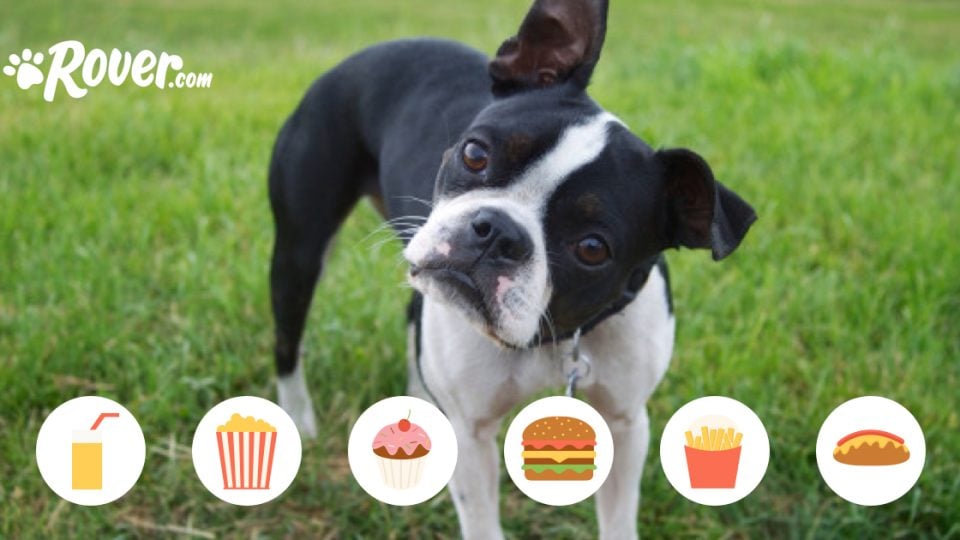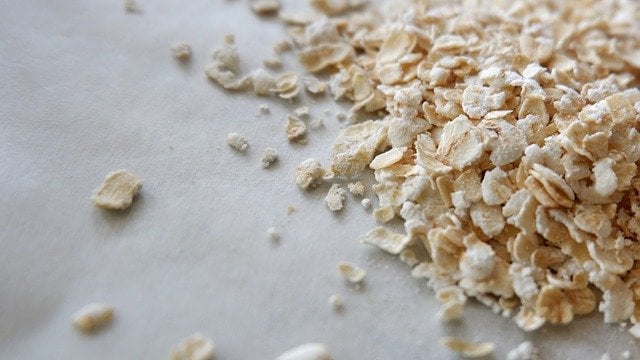Yes. Oats are a great source of protein and soluble fiber, which can help older dogs with digestive issues. They also contain vitamin B6 and iron. They’re an excellent grain for dogs with wheat allergies. And oats are low in gluten.
Oats are a classic breakfast staple rich in vitamins, minerals and antioxidants. Eating oats regularly has well documented benefits for the human set and dogs can reap similar advantages from the grain when incorporated into their diet in moderation.
Why Are Oats Good For Dogs To Eat?
Oats are a nutrient-dense alternative to wheat and corn. In addition to containing more protein than most grains, oats are a good source of fiber, which can help to regulate bowel movements and glucose in the bloodstream.
Oats are also packed with minerals including iron, magnesium and zinc and are high in vitamin B and omega-6 fatty acids, both of which help to maintain healthy skin and coat. Among the many antioxidants found in oatmeal are avenanthramides, gas molecules which help to improve blood flow and lower blood pressure. Beta-glucan, a soluble fiber found in oats, helps to reduce cholesterol and blood sugar, and to promote the growth of beneficial bacteria in the digestive tract.
What Kind Of Oats Can My Dog Eat?
The best oats to feed a dog are those that have been minimally processed. Instant oatmeal, which is pre-cooked then dried and pressed, has less nutritional value than steel-cut or old-fashioned rolled oats.
Dogs should never be fed oats that are flavored or pre-mixed with seasonings or add-ins like raisins, which are toxic to canines. These styles of oats are typically high in sugar and could contain xylitol, an artificial sweetener that is dangerous for dogs to consume.
Because raw oats are harder for your dog to digest, they should always be cooked (and thoroughly cooled) before serving. When preparing oats for a dog, avoid using milk of both the dairy and non-dairy variety. Dogs can’t easily break down the lactose in dairy and plant-based milks may contain other ingredients, such as almonds, which are hard for dogs to digest. Mixing oats with plain water is the best option for your pup.
How Often Can My Dog Eat Oats?
Like most human edibles, oats should be considerd a sometimes food for your dog. This is, in part, due to the high levels of fiber in oats. Feeding your dog too much can lead to tummy trouble, including diarrhea and vomiting. It’s also relatively high in carbohydrates and calories and eating too much at once can result in bloat, a potentially life-threatening condition.
If your dog is eating a nutritionally-balanced diet, oats can be an occasional treat served once or twice a week. A good rule of thumb is to feed your dog no more than one tablespoon of cooked oats per 20 lbs of body weight at any one time. An 80-lb dog, for example, should have no more than 1/4 cup of cooked oats in a single meal.
Other Grains That Are Good For Dogs
There are a number of cereals that are safe for your dog to eat and which provide similar levels of important nutrients like fiber, carbohydrates and vitamin B. When selecting one for your dog, choose a variety that is whole grain and minimally processed. Like oats, other whole grains should be given in moderation as a complement to a nutritionally-appropriate and balanced diet.
Are There Other Ways My Dog Can Benefit From Oats?
Oats are commonly used in canine shampoos because of their ability to soothe the skin. Oats contain saponins, organic chemicals that foam in water and act as a cleanser. Their rough texture helto exfoliate the skin and remove dirt, dead cells and loose hair, while their antioxidant and anti-inflammatory properties can calm itchy dry spots.
How To Use Oats For Dog Bathing And Skin Problems
Oats can be used to soothe and cleanse your dog’s skin and coat either by making them into a simple cleanser or a healing paste.
Oat Cleanser
Place several sprigs of rosemary in four cups of water and cook over low heat for 15 minutes. Meanwhile, pour 1 cup of uncooked oats into a blender or food processer and pulse until they are powdered. Remove the rosemary sprigs from the water and pour half of it into the blender or food processor and pulse. Add the remaining water and pulse until fully mixed. At bathtime, use the mixture the way you would any regular doggy shampoo and rinse thoroughly.
Oat Paste
Put 1/2 cup of uncooked oats into a blender or food processor and pulse until powdered. Add warm water a tablespoon at a time and mix until the oats form a sticky paste that is not too runny. Apply the paste to irritated skin and let it sit for 15 minutes. Rinse with cool water or wipe off with a damp cloth.
For More Information
We offer a collection of articles on foods that are healthy or dangerous for dogs to eat, covering everything from grains, fruits, and vegetables, all wrapped up in this handy resource. You might also be interested in reading “Can My Dog Eat Oatmeal?“



